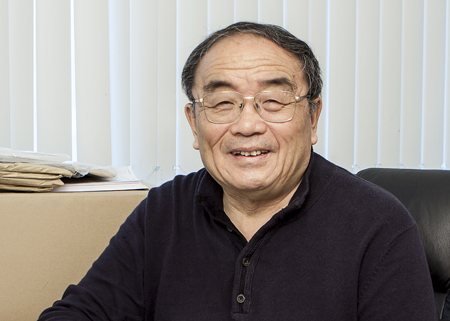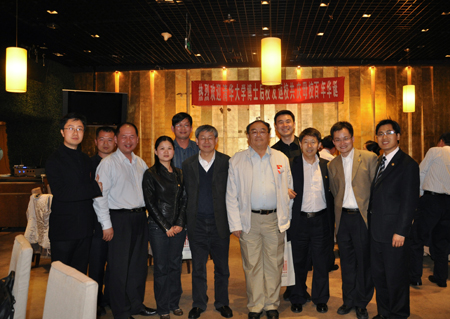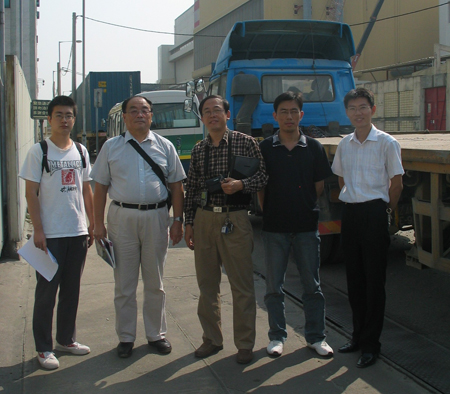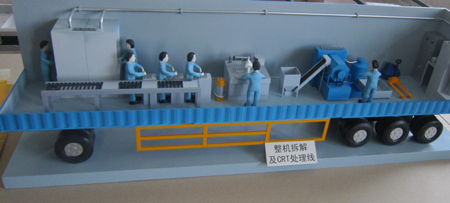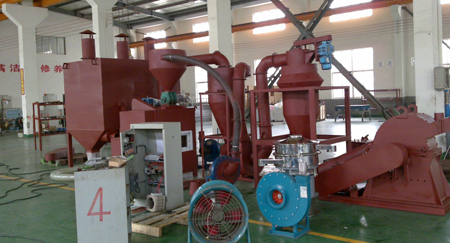From Tsinghua to UM
Wang Zhishi is currently a professor in the Faculty of Science and Technology (FST), University of Macau (UM), and member of the Advisory Council on the Environment of the Environmental Protection Bureau of Macao SAR. He was admitted into the Department of Architecture and Civil Engineering, Tsinghua University, Beijing, at the age of 19. Upon graduation from Tsinghua University, he went on to pursue a master’s degree at Harbin Industrial University, and after a brief teaching stint at Harbin Industrial University after graduation, he returned to Tsinghua University to teach. Later he was assigned by Tsinghua University to the United States for PhD studies at Johns Hopkins University. He received his PhD degree in environmental engineering from Johns Hopkins University in 1986 and returned to Tsinghua University where he taught and conducted postdoctoral research. In 1992, as one of the few academic staff at Tsinghua University with teaching and research experience, an overseas educational background, and the ability to teach in English, Wang Zhishi joined UM, co-established an environmental engineering programme, which would later evolve into the current Department of Civil and Environmental Engineering, and has since taught in the department.
Looking back, Prof. Wang thinks his student years at Tsinghua University are the most crucial period in his life. “I studied at Tsinghua for six years, from 1964 to 1970, and this period has had a great influence on me,” says Prof. Wang. As luck would have it, Wang studied under Prof. Tao Baokai, who received a master’s degree in sanitary engineering from Harvard University and was one of the founders of environmental engineering education in China. Prof. Wang recalls how Prof. Tao, who was then a co-head of the department (the other being Prof. Liang Sicheng), noted in his first class to first-year students that although the Department of Architecture and Civil Engineering seemed to only concern architecture and although designing a masterpiece would mean immortality in history, the environment actually is a more important and sacred element, for a negative environment would render any architectural masterpiece meaningless.
“That was my first introduction to it [environmental engineering], and slowly, over time, my interest grew,” says Prof. Wang. “This [environmental engineering] is becoming an increasingly important subject. Some people even believe that environmental damage and degradation would be one of the scenarios that would eventually destroy mankind.” Prof. Wang points out that an environmental disaster tends to begin with water pollution. “Actually environmental issues only emerged after cities came into being,” notes Prof. Wang. “With the emergence of a city comes wastewater, which brings a series of environmental issues. So when we first started to learn how to treat environmental pollution, we started with treating water pollution.”
Focusing on Research Projects in Macao
Perhaps because of this influence, after he joined UM Prof. Wang recruited a group of PhD and master’s students, and little by little he established a research team to carry out systematic studies based on the actual needs of the Macao society. His team’s first priority was water pollution in Macao. “We have achieved some very good results in hydrogeological studies in Macao,” notes Prof. Wang. “For instance our studies have revealed the hydrogeological characteristics of the waters in the surrounding areas of Macao.” Prof. Wang notes that sediment pollution in Macao is quite serious at the mouth of the river, because Macao is located on the lower reaches of the Pearl River, and sediments carried down by the Lingding Sea accumulate here, significantly affecting the hydrogeological environment. Prof. Wang and his team carried out in-depth studies of the hydrological mechanism. They applied hydromechanics theory and used the computer to simulate the flow paths of sediments. “Macao has a relatively small water environmental capacity, which means it doesn’t have a strong capacity to degrade wastewater. So wastewater must undergo a secondary treatment before it’s discharged into the sea,” says Prof. Wang. The research findings of Prof. Wang’s team have gained recognition from the Macao SAR government. “At first only the Macao peninsula has one [wastewater treatment plant]. Later [the government] built several more, because the government sympathises with our research findings and agrees that it’s a problem that has to be treated this way,” says Prof. Wang.
The research interests of Prof. Wang’s team also include automobile emissions, “Urban Canyon Effect” and waste (domestic waste and e-waste) treatment in Macao. Their studies of automobile emissions in Macao show that the problem is most serious in bus stations. So they carried out chemical analysis, and tried to identify the sources of air pollution by analysing the distribution characteristics of organics, particles and carbon. They also tried to accurately identify the causes of pollution and find solutions by studying the “Urban Canyon Effect” in Macao. “We even did a wind tunnel test,” says Prof. Wang. “We put a mock Macao street into the wind tunnel lab at Peking University, which proved the existence of the ‘Urban Canyon Effect’ as well as revealed the basic pattern of automobile exhaust emission in Macao. We then tried to find a way to control the problem. With wastewater, we could build a treatment plant, but what do you do with automobile exhaust emissions? The physical properties of gaseous substances are different from those of liquid substances like water, which means how we control air pollution is a lot different from how we control water pollution. The first step to controlling automobile exhaust pollution is controlling emission. This involves the concept of ‘emission factors’, which basically means the amounts of pollutants produced by different kinds of vehicles after running one kilometre. We did a lot of work, including computer simulation and field measurement, and the latter was especially challenging.” Currently Prof. Wang’s team is continuing with their research, hoping their efforts can yield results in the near future that will enable government departments to make better-informed decisions. For instance, Prof. Wang hopes their research findings could serve as a basis for the establishment of emission standards by the government.
On the front of waste treatment, Prof. Wang is heading a project on the prevention and treatment of automobile emissions and e-waste in Macao, which is a collaborative project between UM and Tsinghua University. This project gained official approval from the Ministry of Science and Technology in 2009 under the National 863 High Technology Development Programme. It is co-funded by the Ministry of Science and Technology and the Environmental Protection Bureau of Macao SAR, and has received extensive media coverage. Prof. Wang notes that with socioeconomic development and the advancement in science and technology, more and more electrical and electronic products are entering homes and offices. This and the shortening life cycles of the products have combined to result in an increasing generation of e-waste. Prof. Wang believes that Cathode Ray Tube (CRT) and Printed Circuit Board (PCB) are both the key and the challenge in the in-depth treatment of e-waste in Macao, whether in terms of environmental impact or resource recycling. “We and colleagues from Tsinghua University have co-developed two mobile devices, one with the capacity to treat 20 CRT monitors per hour, and the other for recycling scrapped PCB, which increases precious metal recovery rate to over 90 per cent. We hope our work can help to address the issues of e-waste control and resource recycling in Macao within the next five to ten years,” says Prof. Wang.
Witnessing the Changes of Macao and UM
Because the research projects conducted by Prof. Wang’s team are closely connected to some of the pressing issues faced by Macao, their interaction and collaboration with the various government departments have become closer and more frequent. “UM has done a lot of work in this area [environmental engineering], playing a leadership role on technological and research levels,” says Prof. Wang. “Studies of automobile emissions, e-waste and water pollution all started here [UM]. With the progress in our studies, over time it [the SAR government] came to realise the importance as well. So without our realising it, our studies have had some influence on the government. Our findings based on meticulous research and scientific demonstrations will hopefully provide the basis for future decision-making on the part of the government.”
“Seeing how much Macao and UM have changed over the past two decades, I feel very happy and proud since I’m also part of this process of change. I’m impressed by Macao people’s strong sense of attachment and belonging to the country, and I find Macao people have this kind of easy charm,” says Prof. Wang. “Actually my main research focus over the past 20 years has been on issues I mentioned earlier—water pollution, air pollution, and so on. Another focus for my future research will be on the utilisation of environmental resources. Environment and resources are inextricably linked. We are keenly aware that the biggest problem that has been plaguing Macao is the lack of land. This also makes it tougher for Macao to address environmental issues than for its neighboring regions. Indeed, the lack of land has been the major stumbling block to economic, social and environmental development in Macao.” Is it an insurmountable problem then? “It depends on how you look at it,” answers Prof. Wang. “If we look at it from a different angle, we could actually find more motivation to make better use of the limited land we have. If increasing land supply is impossible, we’re going to have to minimise the negative impact [of the lack of land], aren’t we?”
Because of his success in founding an environmental engineering programme at UM, Prof. Wang was awarded a Medal of Merit—Professions by General Vasco Joaquim Rocha Vieira, the then-governor of Macao, before Macao’s return to the motherland. His contribution to higher education in Macao was recognised again in 2010, when he received another Medal of Merit—Professions from the Macao SAR government. Currently Prof. Wang and his team are working on numerous environmental issues of great relevance to the Macao society. Looking to the future, Prof. Wang says, “Cross-regional collaboration has a lot of potential, but its success depends on how the collaboration develops in the future. How do we achieve a balance between meeting the demands of economic development and fulfilling people’s hope for a better-quality life? How can we protect our environment to realise sustainable development? These are challenging issues yet to be addressed.”
About the e-Waste Treatment R&D Project
This research project is under a memorandum of understanding (MOU) on collaboration between the Ministry of Science and Technology of the People’s Republic of China and the Macao SAR government. According to the MOU, this project on the control of automobile emissions and e-waste in Macao is co-funded by the Ministry of Science and Technology and the Environmental Protection Bureau of Macao SAR. The project received official approval from the Ministry of Science and Technology under the National 863 High Technology Development Programme in 2009, after which Tsinghua University was entrusted to conduct research on the prevention and treatment of automobile emissions and e-waste in Macao. UM participates in the project as a collaborative research institute in Macao.
The amount and types of e-waste are increasing year after year. It is estimated that by the year 2020 e-waste will have exceeded 6,600 tons. The fact that e-waste contains highly toxic substances but also valuable raw materials makes the treatment of e-waste a pressing issue with a considerable bearing on the environment. The project aims to address this issue by first conducting a comprehensive analysis of the generation and management of e-waste and other solid wastes in Macao and then developing mobile e-waste treatment devices that suit the unique situation of Macao. For Macao, CRT and PCB are both the key and the challenge in the in-depth treatment of e-waste, whether in terms of environmental impact or resource recycling. So the project focuses on the development, integration and application of treatment techniques for these two types of e-waste. E-waste treatment and disposal techniques and related facilities planning as well as solid wastes management and treatment solutions are also proposed. Main subjects of study under this project include, (1) policies for e-waste management and solutions for e-waste treatment, and, (2) integration and demonstration of typical e-waste treatment systems.

